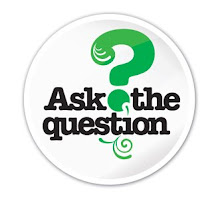Went to a gas station recently, it was early morning and before my coffee, and was blasted with commercial messaging coming from a video monitor built into the gas pump. There's was no getting away from it while I was using the pump which lasted about five minutes. And the whole time, I was getting angrier and angrier at this particular supplier for subjecting me to this. So... where will ad messaging go from here?
Advertisers have been seeking new ways to reach consumers since it all began but never to the fever pitch it has reached over the last 10 years or so.
Traditional media like television has ventured beyond the commercial break to promote themselves. It started with network logos appearing in the bottom right corner of the screen. Sports Networks adopted permanent banners across the bottom of the screen providing constant updates and info about upcoming games. Most recently, some networks have messages that pop-up right over the program your watching (like those annoying pop-ups you see when your online) promoting the next program! They obviously don't think very highly about the quality of their programming.
Advertising could always be found on TV, radio, outdoor and in all magazines and newspapers.
Now you can find ads in bathrooms including the inside of cubicles, in elevators, on floors, even on parking lot gate lift-arms. On every mode of public transport ... subway, bus, streetcar, taxi both inside and out. There's a company in the U.S. that's offering advertisers access to the cab drivers themselves for use as impromptu pitchmen.
However, technology is the real booster engine propelling ad messages.
Websites, viral email and video, podcasts, text messages, digital screens in-stores and even at gas pumps to name a few.
If the when, where and how ad messaging appears keeps expanding that the way it has been, in future no person on the planet may be able to avoid it no matter where they are.
So what's my point.
I have no point to make here but just to ask, where will it end and what will be the impact on us as human beings?
Marshall McLuhan said, "The medium is the message."
So what's the message? Will we evolve to be able to assimilate a limitless amount of messaging? Or will we become drones that simply react to it? Or...
Wednesday, February 27, 2008
Tuesday, February 19, 2008
Technology Backlash?
Here's an article I sourced from AdAge, a U.S. Advertising periodical.
Is the end of technology near?
Too Much Infotechnology Can Lead to Brain Overload
Steve Rubel on Digital Communications
By Steve Rubel
Steve Rubel is a marketing strategist and blogger. He is senior VP in Edelman's Me2Revolution practice.
Published: February 18, 2008 Advertising Age Online Magazine
Conventional wisdom says the internet will continue to become more central in our lives, bringing with it productivity gains. And for more than 15 years, internet innovations have revolutionized marketing.
Culturally, however, there are some signs of a backlash against technology -- even among the most addicted. This trend is worth watching because it could slow down or even derail the digital-marketing train.
Over the last decade, Americans have become hopelessly addicted to information and busyness. We have all overheard people bragging about their back-to-back schedules and massive e-mail inboxes. There's a certain respect that flows to the individual who can manage 500 daily e-mails, almost as though he or she is the king of the jungle.
We crave information and busyness because it makes us feel wanted, needed and, above all, important. However, too much of a good thing is never ideal. And now that we have a host of new distractions such as Facebook and Twitter, many people have truly maxed out. Human attention can't scale, as much as we would like it to.
The successes of blogs such as Lifehacker and Lifehack and books such as "Getting Things Done" and "The Four-Hour Workweek" show that lots of people are eager for a quick fix. However, the data are even more damning. A Basex study published in December found that the pressure to respond in real time to instant messages, e-mails and text messages cost the U.S. economy $650 billion in 2006. Separately, annual productivity growth has slowed from to 1.6% in 2007 from 4.1% in 2002, according to the U.S. Bureau of Labor Statistics. The dirty little secret is that the internet may be hindering our productivity.
If enough people get the willpower to say "enough," net spending on gadgets and time spent online could decline. In a worst-case scenario, companies would retrench R&D spending, and innovation would slow. That's just one extreme possibility -- and the most unlikely.
The X factor here is actually a Y factor: Generation Y. These kids grew up in an age of information saturation. This generation has coping skills that most of us simply do not.
I am hopeful that as Gen Y comes of age, the likelihood of a doomsday scenario where people cut back on internet time remains unlikely. That's not to say there won't be pain, however, in the interim until Gen Y supplants the baby boomers in spending power and influence.
Steve Rubel on Digital Communications
By Steve Rubel
Steve Rubel is a marketing strategist and blogger. He is senior VP in Edelman's Me2Revolution practice.
Published: February 18, 2008 Advertising Age Online Magazine
Conventional wisdom says the internet will continue to become more central in our lives, bringing with it productivity gains. And for more than 15 years, internet innovations have revolutionized marketing.
Culturally, however, there are some signs of a backlash against technology -- even among the most addicted. This trend is worth watching because it could slow down or even derail the digital-marketing train.
Over the last decade, Americans have become hopelessly addicted to information and busyness. We have all overheard people bragging about their back-to-back schedules and massive e-mail inboxes. There's a certain respect that flows to the individual who can manage 500 daily e-mails, almost as though he or she is the king of the jungle.
We crave information and busyness because it makes us feel wanted, needed and, above all, important. However, too much of a good thing is never ideal. And now that we have a host of new distractions such as Facebook and Twitter, many people have truly maxed out. Human attention can't scale, as much as we would like it to.
The successes of blogs such as Lifehacker and Lifehack and books such as "Getting Things Done" and "The Four-Hour Workweek" show that lots of people are eager for a quick fix. However, the data are even more damning. A Basex study published in December found that the pressure to respond in real time to instant messages, e-mails and text messages cost the U.S. economy $650 billion in 2006. Separately, annual productivity growth has slowed from to 1.6% in 2007 from 4.1% in 2002, according to the U.S. Bureau of Labor Statistics. The dirty little secret is that the internet may be hindering our productivity.
If enough people get the willpower to say "enough," net spending on gadgets and time spent online could decline. In a worst-case scenario, companies would retrench R&D spending, and innovation would slow. That's just one extreme possibility -- and the most unlikely.
The X factor here is actually a Y factor: Generation Y. These kids grew up in an age of information saturation. This generation has coping skills that most of us simply do not.
I am hopeful that as Gen Y comes of age, the likelihood of a doomsday scenario where people cut back on internet time remains unlikely. That's not to say there won't be pain, however, in the interim until Gen Y supplants the baby boomers in spending power and influence.
Monday, February 18, 2008
It begins...
Have decided to start sharing my thoughts with you, the unsuspecting populace outside of my world. We'll see where it goes...
Subscribe to:
Posts (Atom)
















